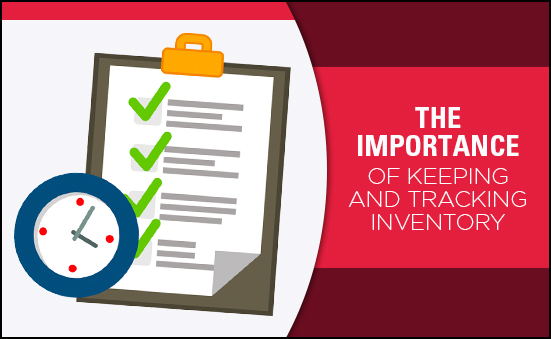You Can’t Sell What You Don’t Measure (Or Have)
Inventory management is an art that can elevate your business to new heights, if done well. It is highly variable, and the optimal system is different for each dealer. There are many tools that can be implemented to improve your inventory management, which will ultimately help you grow your bottom line.
Let’s explore five reasons why it is vital to your business to have a good inventory management system in place.
Improve the Accuracy of your Orders
Proper inventory management helps you figure out exactly how much inventory you need to have on-hand. This helps prevent product shortages and allows you to keep just enough inventory without having too much in the warehouse.
Successful inventory management involves balancing the costs of inventory with the benefits of inventory. Many dealers fail to fully appreciate the true costs of carrying inventory, which includes not only direct costs of storage, insurance and taxes, but also the cost of money tied up in inventory. This fine line between keeping too much inventory and not enough is not the only concern. Others include:
• Maintaining a wide assortment of stock — but not spreading the rapidly moving ones too thin;
• Increasing inventory turnover — but not sacrificing the service level;
• Keeping stock low — but not sacrificing service or performance;
• Obtaining lower prices by making volume purchases — but not ending up with slow-moving inventory; and
• Having an adequate inventory on hand — but not getting caught with obsolete items.
Organize Your Warehouse
An organized warehouse makes your business life simplified, and a good inventory management approach supports an organized warehouse.
If your warehouse is unorganized, you will be challenged in managing your inventory. Many companies choose to optimize their warehouses by putting the highest selling products together and in easily accessible places in the warehouse. This helps speed up the order fulfillment process and keeps customers happy.
Save Time and Money
By keeping track of which products you have on-hand or ordered, you save yourself the effort of having to conduct regular inventory recounts to ensure your records are accurate. A good inventory strategy also helps you save money that might otherwise be wasted on slower selling products.
Increases Efficiency and Productivity
Inventory management devices like barcode scanners and inventory management software, can help improve your efficiency and productivity. These devices will eliminate manual processes so your employees can focus their time on other areas of the business. All BioZyme products come with a preassigned SKU to assist in inventory control.
Forecasting will also help you increase efficiency in your business. A huge part of good inventory management comes down to accurately predicting demand. Make no mistake, this is incredibly hard to do. There are so many variables involved and you’ll never know for sure exactly what’s coming, but you can get pretty close. Here are a few things to look at when projecting your future sales:
• Trends in the market
• Last year’s sales during the same week/month
• This year’s growth rate
• Guaranteed sales from contracts
• Seasonality and the overall economy
• Upcoming promotions
• Planned ad spending
If there’s something else that will help you create a more accurate forecast, be sure to include it. A helpful planning tool would be to graph product sales from last year by month, so you have a picture that serves as a rough forecasting tool to help stay ahead of ordering and marketing.
Build a Repeat Customer Base
It’s a fact that good inventory management leads to what you should be constantly striving for—repeat customers. If you want your hard-earned customers to come back for your products and services, you need to be able to meet customer demand quickly. Inventory management helps you meet this demand by allowing you to have the right products available when your customers need them.
Accurate inventory management incorporates what you know about customer and product demand from the past and present to (ideally) predict your best course of action in the future. Optimize the value of such information by coupling your inventory management and marketing promotions to work together. For example, such insights can reveal potential opportunities to leverage quantity-based pricing suppliers may offer, while at the same time empowering you to offset times of lower demand with promotions or ‘packaged’ deals that strategically drive sales.
It is always a best practice to ensure you have product on the floor at least 2 weeks prior to the beginning of selling season for each product and then use the forecasting tools above to prepare for restocking throughout the season.
Inventory management is a good practice for your sanity and for your customer satisfaction. You can’t sell what you don’t have. So, stock accordingly, and watch your business grow.
